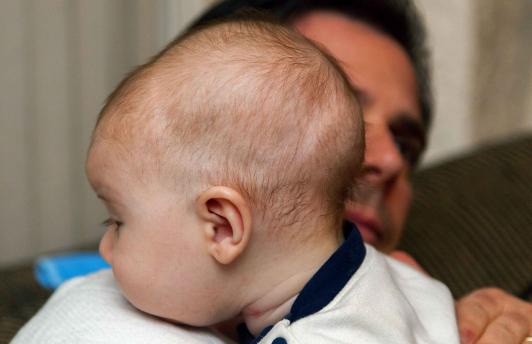Pediatric ENT
Feeding Difficulties
Did you know that children who have difficulty swallowing or a cleft palate can be helped by a pediatric ear, nose, and throat (ENT) specialist? If a child is having problems with eating, speaking, or hearing, then a visit to the pediatric ENT might be in order. A Pediatric ENT will work closely with the family to create an individualized treatment plan for the child. Feeding difficulties may arise when there are concerns about how food passes through the oropharynx into the esophagus. The oropharynx is located between the back of your tongue and your voice box, also called your larynx.
- Tongue Tie
- Swallowing Difficulties
- Laryngopharyngeal Reflux
- Laryngeal Cleft
Tongue Tie
Tongue-tie is a condition in which the thin membrane under your tongue (lingual frenulum) restricts the movement of your tongue. This can lead to feeding difficulties and speech problems. Tongue-tie may require surgery to correct.
When feeding difficulties persist, parents should consult their pediatric ENT.

Swallowing Difficulties
Feeding difficulties are a common complaint among parents of young children. Pediatric Ear, Nose, and Throat specialists can help diagnose and treat problems that may be causing these issues.
The most common causes of feeding difficulties in children are related to the swallowing mechanism or muscle tone. In these cases, an ENT specialist can help evaluate your child’s swallowing mechanism and recommend treatment for specific issues. Another possible cause of feeding issues is a structural problem in your child’s mouth or throat. Most children develop without any issues, but for some, something gets in their way as they grow.


Pediatric ENTs will examine your child to identify the specific cause of the feeding difficulty. If a structural issue is identified, we’ll work with you to find the best solution.
Laryngopharyngeal Reflux
A common cause of feeding difficulties is laryngopharyngeal reflux (LPR), also known as acid reflux. LPR is a condition where the stomach contents back into the throat and cause inflammation in the larynx and pharynx. Laryngopharyngeal reflux can be treated through dietary changes, medications, or surgery.
Pediatric ENTs are specially trained in diagnosing and treating children with swallowing problems like laryngopharyngeal reflux. If your child has trouble swallowing due to an underlying health issue, it’s important for you to see a pediatric ENT specialist for evaluation and treatment.

Laryngeal Cleft
A laryngeal cleft is a defect of the larynx, which is the voice box. Symptoms of laryngeal cleft include choking or cough when swallowing liquids. More severe cases of laryngeal cleft may result in respiratory issues such as asthma or recurrent pneumonia.
Children with symptoms of a laryngeal cleft should see a pediatric ENT specialist for evaluation.


Laryngeal clefts can cause feeding difficulties and breathing problems in infants and children, but pediatric ENT specialists are trained to fix these problems. Parents need to be aware of this condition to get treatment when necessary. Pediatric ENT specialists perform surgeries on children with clefts to repair their throats and larynx.
Pediatric ENTs will work closely with the family to create an individualized treatment plan for the child.
When symptoms persist, they may recommend surgery to correct any problems found in the airway. Surgery may be needed in some cases to remedy a problem detected during the mouth and throat examination.
There are many potential causes for difficulties with eating and speaking, but a visit to a pediatric ENT may help diagnose what is causing them so the best course of action can be taken.

